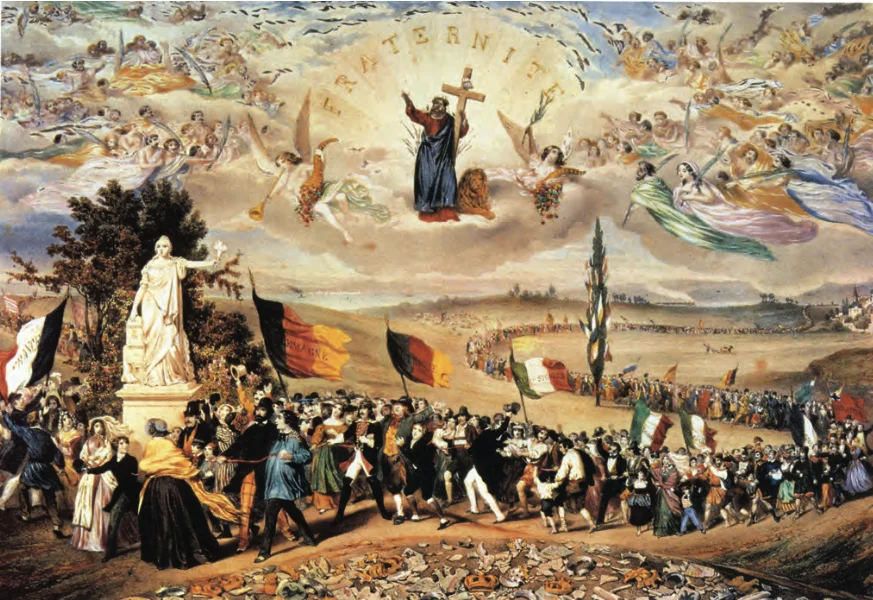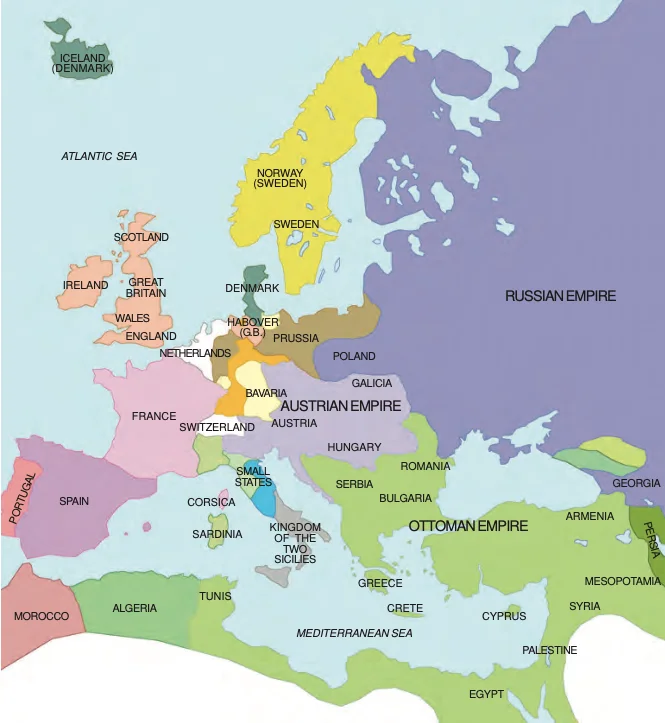![]() 22 Jul 2024
22 Jul 2024
Nationalism is a complex and multifaceted phenomenon that has shaped the political, social, and cultural landscape of Europe for centuries. It is a powerful force that has inspired people to fight for their rights, their freedom, and their identity. Role of key leaders such as Mahatma Gandhi and Jawaharlal Nehru in shaping movement and strategies they employed to achieve independence from British colonial rule is pivotal in fuelling and spreading Nationalism among masses.

Before the mid-19th century, Europe was characterized by a complex web of multinational dynastic empires. Absolute monarchy prevailed. Seeds of nationalism, sown during the 1789 French Revolution, gradually sprouted, leading to formation of democratic nation-states across most parts of the world by the early 20th century.
Frederic Sorrieu, a French artist drew a series of four prints that depicted his dream of a world made up of ‘Democratic and Social Republics’ in 1848.
Birth of Nationalism: In 1789, the French Revolution transferred sovereignty from the monarchy to French citizens, marking the rise of Nationalism.

| Must Read | |
| Current Affairs | Editorial Analysis |
| Upsc Notes | Upsc Blogs |
| NCERT Notes | Free Main Answer Writing |
Throughout the 19th century, nationalism emerged as a transformative force in Europe, leading to the replacement of multinational dynastic empires with nation-states and it gave impetus to nationalist movements in Europe and other countries. Principles laid down during the French Revolution like ideals of liberty were guiding principles of several nationalist movements.
<div class="new-fform">
</div>